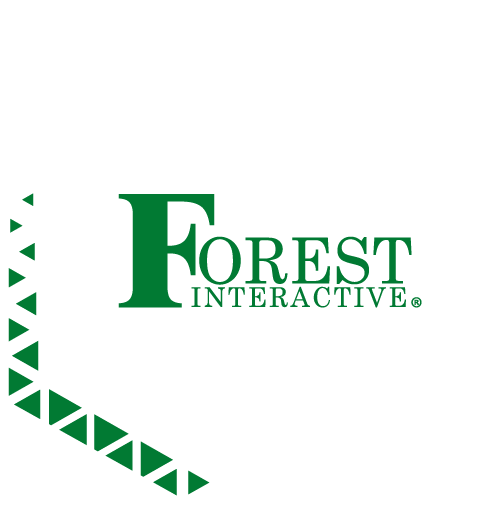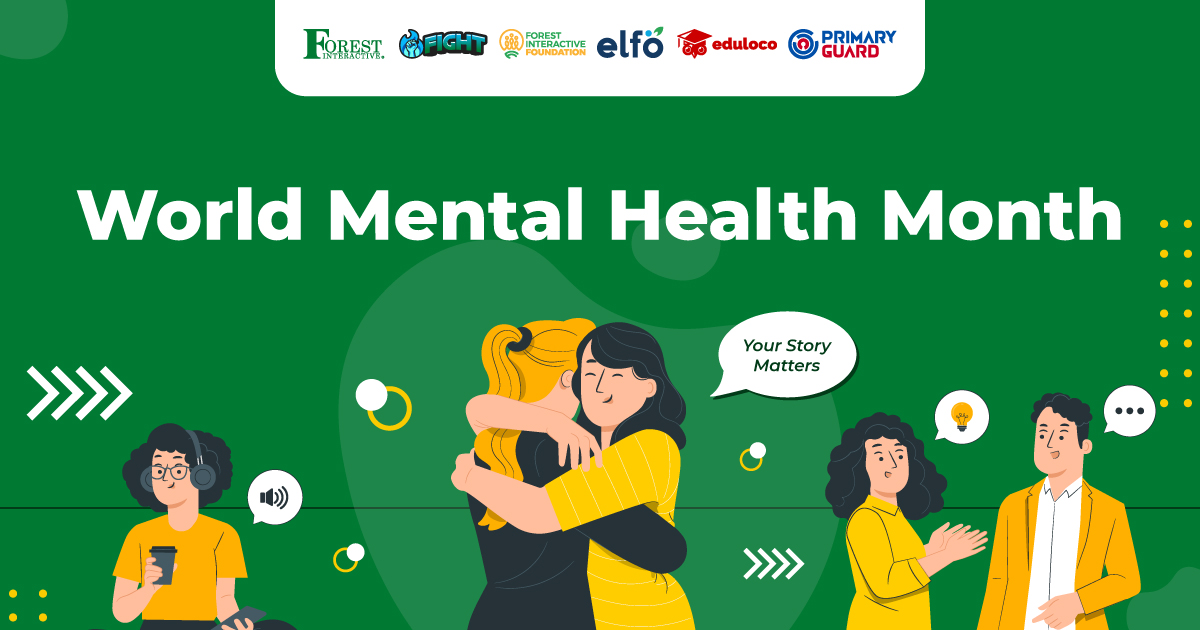
KUALA LUMPUR: In a tribute to taking care of the self and others simultaneously, Forest Interactive commemorated World Mental Health Day this year with a month-long campaign in October 2021.
Spearheaded by the Corporate PR and People Operations departments, weekly activities were designed to engage with talents in an interactive and inclusive manner, while being informative of the event’s theme, which is mental health awareness within the self and others.
#TimeToUnmute
People Operations provided three distinct activities: Gratitude Challenge, Quizzes on #WellnessThursday, and Twibbon Challenge. We celebrated the month-long campaign in the Virtual Pantry, a company-wide group chat initiated during the pandemic to mimic in-person water-cooler conversations at the office.
The idea of being thankful and appreciative in life is valuable to have. Yet, that is not always the case as of us may struggle to identify areas in our lives we can be grateful for. And so, the Gratitude Challenge was developed as an exercise in developing one’s own optimism and cultivating a healthier mindset as a whole.
Talents were asked to list three things that they are grateful for in their lives, to encourage them to think and ponder upon the concept of gratitude in the context of their own lives. A step in the right direction comes from within, and this begins with asking the right questions.
Call To Mind & Your Story Matters
Aside from that, there were also the Quizzes on #WellnessThursday, a series of questions about mental health that are distributed via Kahoot in the Virtual Pantry; a fun exercise while raising awareness on the general information regarding mental health. On the other hand, the Twibbon Challenge was a unique experience where talents were given a twibbon (an image that can be overlayed on a social media post), to relay the importance of mental health on social media platforms.
Relax and Unwind
Additionally, People Ops shared a list of podcasts covering a wide range of topics related to mental health in the Virtual Pantry, where talents can find and listen to the ones that are most related to them. Through the recommended mental health-curated podcasts, talents can delve deeper into ways to improve their mental health or gain knowledge for self-awareness.
The Power of Words
From Corporate PR comes something more experimental. The Love-Hate Rice Jar Experiment, is as the name suggests, about developing conflicting relationships with two jars of rice. 7 talents volunteered for this experiment, with the goal for talents to observe the effects of our words, both good and bad.
Divided into two containers, the rice was subjected to different verbal treatments; one was ridiculed, while the other was showered with kind words. The results of this experiment showed that the rice jar that was ridiculed spoiled quicker than the one that was subjected to kind words.
If words have the power to kill, then we should be cautious of what to say and strive to be a good friend to those around us, which was the focus of the panel session: How to Be a Good Friend.
Hosted by Tassya Bainon, Public Affairs Liaison at Forest Interactive, the panel session featured talents from all walks of life, who took turns discussing the nature of relationships and ways to maintain healthy and productive interpersonal relationships.
“Love language is the term that is used for couples, but in a general sense, it can also be applied to our personal interactions with everyone around us,” she added. “There are a total of five love languages: words of affirmation, receiving gifts, acts of service, quality time, and physical touch. Everyone has their own preference when it comes to their love language, thus we must identify what our friends’ love language is in order to create a coherent and effective relationship with them.”
“Dislike”. That was the most frequent word used for the response in one of the questions in the survey. It was odd to see such a response so unanimously agreed upon by the talents. Were they unhappy with the campaign? Did the programs make light of the subject matter or didn’t do it justice? But that’s not the case, not the full story. When I expanded to see the answer in full by the talents, what came after is the bigger picture. There was context in that “dislike” word. It wasn’t dislike in the campaign but rather there was nothing to dislike about it. And that was the meaning behind the word.
Words are odd. Their meanings have a definite form and yet the meaning itself can change depending on who’s hearing it. And that shows the power of words and how it can significantly change the way we think and the way we view the world. Just like my brief experience with the survey, the words have warped my view of the campaign as if it was a grave mistake. But in reality, it was far from it and that the talents at the end of the day enjoyed on what was offered to them.
Sometimes the mind plays tricks on you. What is in front of you can be seen as something else entirely, even though the context behind it is less insidious than what is expected. A result of the environment we used to live in, or the current one that we stay in. It changes our perception. It changes our behaviour. But within that logic, we can change as well.
When I started realising this, I begin to see the other positive responses from the survey, like how the satisfaction level from the talents towards the campaign has an average rating of 4.43, or how the satisfaction for the speakers has an average of 4.29 rating, or how most of the talents would participate in the campaign again if it were done tomorrow.
Everything becomes a little brighter now, more hopeful than before. And before I knew it, everything was alright in the end.
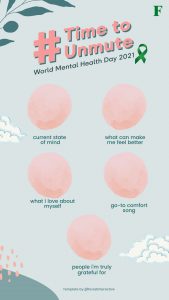
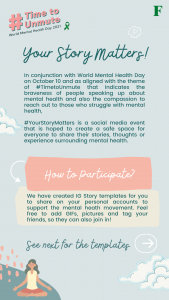
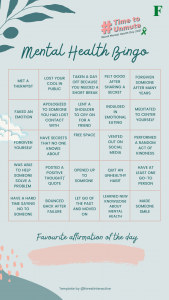
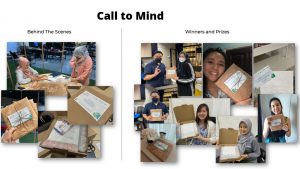
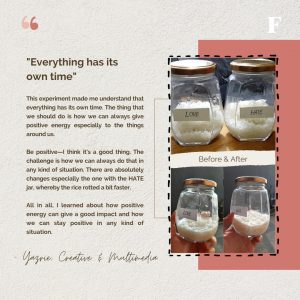
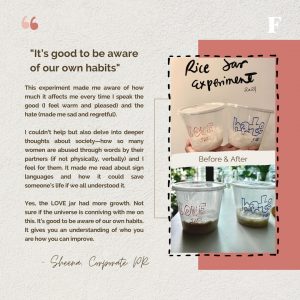
 Company Profile
Company Profile Brand Identity Guidelines
Brand Identity Guidelines